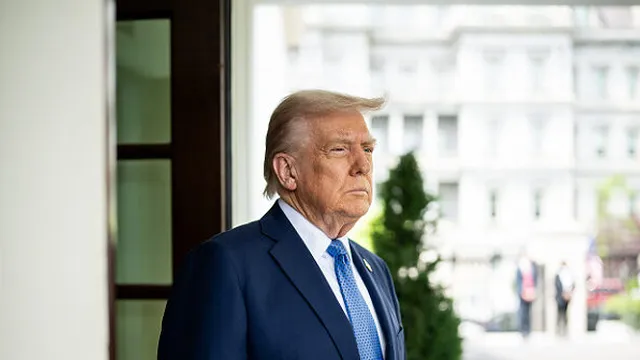
Pakistan nominates Donald Trump for Nobel Peace Prize for peace efforts
2025-06-25 13:34- Pakistan has put forward Trump's name for nomination for the Nobel Peace Prize due to his role in mediating conflicts.
- Relations between India and Pakistan deteriorated in recent months, with violent incidents leading up to a temporary ceasefire in May.
- This nomination reflects strategic interests as well as mixed feelings within Pakistan regarding Trump's policies.
Express your sentiment!
Insights
Pakistan has announced its intention to suggest Donald Trump for the Nobel Peace Prize, highlighting his intervention that purportedly brought about de-escalation during recent conflicts with India. This nomination relates to events in May, when a serious confrontation occurred between the two nuclear nations, culminating in a ceasefire that Trump claimed could have prevented a nuclear war. Pakistan's government recognized Trump's 'strategic foresight' and 'stellar statesmanship' in these discussions, which took place amid escalating tensions following violent clashes in Kashmir, a contested region vital to both nations. Despite Pakistan's praise, opinion within the country is not unanimous, as some critics express concern over Trump's support for Israel amid conflicts in Gaza, indicating a backlash against his nomination. This unexpected endorsement by Pakistan may also have broader implications for Trump’s diplomatic relations in the Middle East and the Indo-Pakistani conflict, suggesting a strategic move to influence U.S. policy related to Iran. Prominent figures from Pakistan have reiterated both support for the nomination and skepticism regarding its effectiveness in gaining international recognition for Trump's peace efforts, given the contentious views surrounding his foreign policies.
Contexts
The India-Pakistan conflict has its roots in the partition of British India in 1947, which led to the creation of two independent nations: India and Pakistan. This division was based on religious lines, with Pakistan established as a separate nation for Muslims, while India was to remain a secular state accommodating all religions. The partition was marked by significant violence, mass migrations, and communal riots, resulting in the deaths of hundreds of thousands. The issue of Kashmir emerged immediately as both nations sought to assert control over the region, which was a princely state with a predominantly Muslim population that acceded to India. This led to the First Indo-Pakistani War (1947-1948), and the subsequent establishment of the Line of Control, which continues to demarcate the disputed region to this day. The United Nations intervened, calling for a plebiscite to determine the region's future, which has yet to occur and remains a point of contention. Over the decades, the conflict has been characterized by a series of wars and military skirmishes, notably the Second Indo-Pakistani War in 1965 and the 1971 war, which resulted in the secession of East Pakistan and the creation of Bangladesh. The nuclearization of both countries in the late 20th century brought about a precarious balance of power, heightening tensions and risks of escalation. In 1999, the Kargil Conflict further strained relations, displaying the volatility of the situation despite both nations having similar nuclear capabilities. The conflict in Kashmir remains central to India-Pakistan relations, with militant groups operating in the region often supported by Pakistan, leading to accusations from India of state-sponsored terrorism. In addition to territorial disputes, other issues complicate bilateral relations, such as water rights over the Indus River system, trade disputes, and historical grievances rooted in communal violence. Diplomatic attempts at peace talks, including various agreements and dialogues, have often been undermined by incidents of violence such as the 2001 Indian Parliament attack and the 2016 Uri attack, leading to a cycle of retaliation. Moreover, the rise of nationalist sentiments in both countries complicates the prospect of reconciliation, where hardline stances tend to dominate public discourse. The continuous military standoffs and intermittent skirmishes contribute to a climate of mistrust. In recent years, the conflict has manifested in new dimensions, particularly with cyber warfare and social media campaigns, representing an evolving battlefield. Efforts for peace, such as cricket diplomacy and cultural exchanges, occur sporadically but usually falter in the face of political realities. The global geopolitical landscape further complicates the situation, with different countries taking sides based on their strategic interests in the region. The international community, particularly through the United Nations, continues to emphasize the need for dialogue and peaceful resolution, but the entrenched positions of both nations, along with regional ambitions, mean that a lasting solution remains elusive. As it stands, the India-Pakistan conflict reflects a complex interplay of historical grievances, national identity, and geopolitical strategy that continues to pose challenges for peace in South Asia.